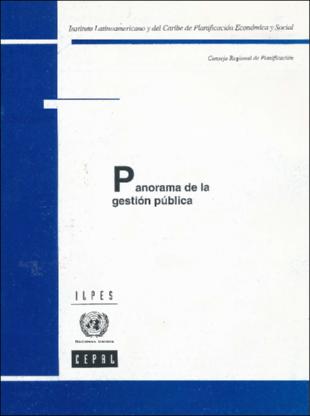Planning for development in the 60 years of ILPES
From 2000 to 2015: Planning for development with equality at the centre
On the eve of the new millennium, ECLAC recommends equality as the main axis for guiding development: the reduction of inequality in its multiple dimensions --social, economic, cultural, political, technological, territorial--, the enforcement of economic, social, and cultural rights, and the guarantee of the rights of the population as a non-delegable responsibility of the State. In September of the same year, the 189 Member States of the United Nations signed the Millennium Declaration, a road map of eight Millennium Development Goals, which represented a commitment by all nations to reduce poverty, hunger, disease, and gender inequality; address the lack of education, and the lack of access to water and sanitation; and to halt environmental degradation.
ILPES accompanied the countries of the region in the transition from economic planning to planning for sustainable development, incorporating techniques for a modernization of the State and for public policy planning with equality as its foundation. The Institute's substantive areas evolved accordingly: a strategic approach to public sector management and budgetary policies, a strengthening of public investment systems and public policy evaluation, and the management of local and regional development, all in pursuit of a more efficient, proactive, and effective State, with citizens at the centre of its actions.
Towards the end of the period, despite favourable regional progress in growth, employment, and poverty and inequality reduction, and in a context of a consolidation of democratic institutions, increased public revenues and spending, and strengthened public management capacity, development gaps remained considerable region wide. At this juncture, ECLAC advocated a new equation between the State, the market and society to transform the progress made in the countries into a lasting process of inclusive sustainable development with equality at the centre of public policy design. To achieve this, the planning exercise was repositioned to guide and formulate State policies that would have long-term horizons and would be built in a participatory manner around a common development agenda. ILPES actively participated in supporting these processes through studies, advisory services, training activities and the creation of a repository of development plans for all Latin American and Caribbean countries.
Featured publications
-
 Descentralización en América Latina: teoría y práctica
by
Call Number: Serie Gestión Pública No. 12 (LC/IP/L.188)Publication Date: 2001
Descentralización en América Latina: teoría y práctica
by
Call Number: Serie Gestión Pública No. 12 (LC/IP/L.188)Publication Date: 2001 -
 Planificación estratégica y gestión pública por objetivos
by
Publication Date: 2003
Planificación estratégica y gestión pública por objetivos
by
Publication Date: 2003 -
 Disparidades, competitividad territorial y desarrollo local y regional en América Latina
by
Publication Date: 2003
Disparidades, competitividad territorial y desarrollo local y regional en América Latina
by
Publication Date: 2003 -
-
 Capital institucional y desarrollo productivo: un enfoque de políticas públicas
by
Call Number: LC/IP/L.251; LC/L.2223-PPublication Date: 2004
Capital institucional y desarrollo productivo: un enfoque de políticas públicas
by
Call Number: LC/IP/L.251; LC/L.2223-PPublication Date: 2004 -
 Evaluación social de inversiones públicas: enfoques alternativos y su aplicabilidad para Latinoamérica
by
Call Number: LC/IP/L.250; LC/L.2210-PPublication Date: 2004
Evaluación social de inversiones públicas: enfoques alternativos y su aplicabilidad para Latinoamérica
by
Call Number: LC/IP/L.250; LC/L.2210-PPublication Date: 2004 -
 Manual para la evaluación de impacto de proyectos y programas de lucha contra la pobreza
by
Publication Date: 2005Serie Manuales No.41 (LC/IP/L.254)
Manual para la evaluación de impacto de proyectos y programas de lucha contra la pobreza
by
Publication Date: 2005Serie Manuales No.41 (LC/IP/L.254) -
 Funciones básicas de la planificación económica y social
by
Publication Date: 2005Serie Gestión Pública No. 51 (LC/IP/L.260)
Funciones básicas de la planificación económica y social
by
Publication Date: 2005Serie Gestión Pública No. 51 (LC/IP/L.260) -
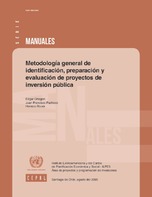 Metodología general de identificación, preparación y evaluación de proyectos de inversión
by
Publication Date: 2005Serie Manuales No. 39 (LC/IP/L.257 |
Metodología general de identificación, preparación y evaluación de proyectos de inversión
by
Publication Date: 2005Serie Manuales No. 39 (LC/IP/L.257 |
LC/L.2326-P)
-
 La política fiscal en tiempos de bonanza
by
Publication Date: 2007Serie Gestión Pública No.66 (LC/L.2736-P)
La política fiscal en tiempos de bonanza
by
Publication Date: 2007Serie Gestión Pública No.66 (LC/L.2736-P) -
 Planificar y presupuestar en América Latina
by
Publication Date: 2007Serie Seminarios y Conferencias No.51 (LC/IP/L.287)
Planificar y presupuestar en América Latina
by
Publication Date: 2007Serie Seminarios y Conferencias No.51 (LC/IP/L.287) -
 Economía y territorio en América Latina y el Caribe: desigualdades y políticas
by
Call Number: LC/G.2385-PPublication Date: 2009
Economía y territorio en América Latina y el Caribe: desigualdades y políticas
by
Call Number: LC/G.2385-PPublication Date: 2009 -
-
 Panorama del desarrollo territorial en América Latina y el Caribe
by
Call Number: LC/W.345Publication Date: 2010
Panorama del desarrollo territorial en América Latina y el Caribe
by
Call Number: LC/W.345Publication Date: 2010 -
 Panorama de la gestión pública en América Latina, en la hora de la igualdad
by
Call Number: LC/W.426Publication Date: 2011
Panorama de la gestión pública en América Latina, en la hora de la igualdad
by
Call Number: LC/W.426Publication Date: 2011 -
 Espacios iberoamericanos: hacia una nueva arquitectura del Estado para el desarrollo
by
Call Number: LC/G.2507Publication Date: 2011
Espacios iberoamericanos: hacia una nueva arquitectura del Estado para el desarrollo
by
Call Number: LC/G.2507Publication Date: 2011 -
 Formulación de programas con la metodología de marco lógico
by
Call Number: LC/L.3317-PPublication Date: 2011
Formulación de programas con la metodología de marco lógico
by
Call Number: LC/L.3317-PPublication Date: 2011
-
 El desafío hacia el gobierno abierto en la hora de la igualdad
by
Call Number: LC/W.465Publication Date: 2012
El desafío hacia el gobierno abierto en la hora de la igualdad
by
Call Number: LC/W.465Publication Date: 2012 -
 Panorama del desarrollo territorial en América Latina y el Caribe 2012
by
Call Number: LC/W.543Publication Date: 2012
Panorama del desarrollo territorial en América Latina y el Caribe 2012
by
Call Number: LC/W.543Publication Date: 2012 -
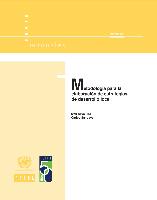 Metodología para la elaboración de estrategias de desarrollo local
by
Call Number: LC/L.3488Publication Date: 2012
Metodología para la elaboración de estrategias de desarrollo local
by
Call Number: LC/L.3488Publication Date: 2012 -
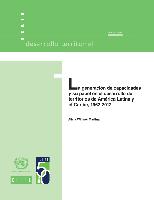 La generación de capacidades y su papel en el desarrollo de territorios de América Latina y el Caribe, 1962-2012
by
Call Number: LC/L.3566Publication Date: 2012
La generación de capacidades y su papel en el desarrollo de territorios de América Latina y el Caribe, 1962-2012
by
Call Number: LC/L.3566Publication Date: 2012 -
 50 años del ILPES: evolución de los marcos conceptuales sobre desarrollo territorial
by
Call Number: LC/L.3593Publication Date: 2013
50 años del ILPES: evolución de los marcos conceptuales sobre desarrollo territorial
by
Call Number: LC/L.3593Publication Date: 2013 -
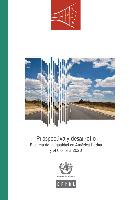 Prospectiva y desarrollo: el clima de la igualdad en América Latina y el Caribe a 2020
by
Call Number: LC/G.2579Publication Date: 2013
Prospectiva y desarrollo: el clima de la igualdad en América Latina y el Caribe a 2020
by
Call Number: LC/G.2579Publication Date: 2013 -
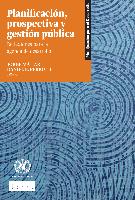 Planificación, prospectiva y gestión pública: Reflexiones para la agenda de desarrollo
by
Call Number: LC/G.2611-PPublication Date: 2014
Planificación, prospectiva y gestión pública: Reflexiones para la agenda de desarrollo
by
Call Number: LC/G.2611-PPublication Date: 2014 -
 Panorama de la Gestión Pública en América Latina y el Caribe
by
Call Number: LC/W.633Publication Date: 2014
Panorama de la Gestión Pública en América Latina y el Caribe
by
Call Number: LC/W.633Publication Date: 2014
A selection of seminars (2000 to 2015)

Funciones básicas de la planificación (2000) / Garnier Rímolo, R. [et.al]
High-Level Seminar on Basic Planning Functions, Port of Spain, Trinidad and Tobago, 5-6 October 2000
Cuadernos del ILPES No. 46 (LC/IP/G.126-P)
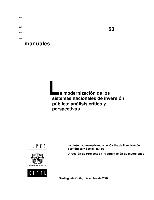
La modernización de los sistemas nacionales de inversión pública: análisis crítico y perspectivas (2002) / Ortegón, E. [et.al]
Seminar on National Public Investment Systems in Latin America and the Caribbean: Balance de Dos Décadas, Santiago, 5-6 November 2001.
Serie Manuales No. 23 (LC/IP/L.216; LC/L.1830-P)
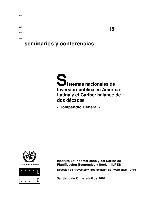
Sistemas nacionales de inversión pública en América Latina y el Caribe: balance de dos décadas: compendio general (2002)
Seminario sobre los Sistemas Nacionales de Inversión Pública en América Latina y el Caribe: Balance de Dos Décadas, Santiago, 5-6 noviembre 2001.
Serie Seminarios y Conferencias No. 18
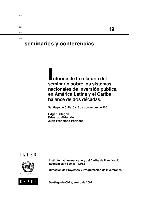
Informe de la relatoría del Seminario sobre los Sistemas Nacionales de Inversión Pública en América Latina y el Caribe: Balance de Dos Décadas: síntesis de los documentos presentados (2002)
Seminar on the National Systems of Public Investment in Latin América and the Caribbean: Balance de Dos Décadas, Santiago, November 5-6, 2001.

Gestión pública por resultados y programación plurianual: documentos presentados en la Primera Reunión de Responsables de Presupuesto de América Latina y el Caribe (2003)
Regional Seminar on Fiscal Policy No. 15, Santiago, 27-30 January 2003.
Serie Seminarios y Conferencias No. 29 (LC/IP/L.230; LC/L.1949-P)

Las finanzas públicas y el pacto fiscal en América Latina: documentos y ponencias presentados en el XX Seminario Internacional de Política Fiscal (2008) / Martner, R.
International Seminar on Fiscal Policy held in Santiago, Chile, January 28-31, 2008.

